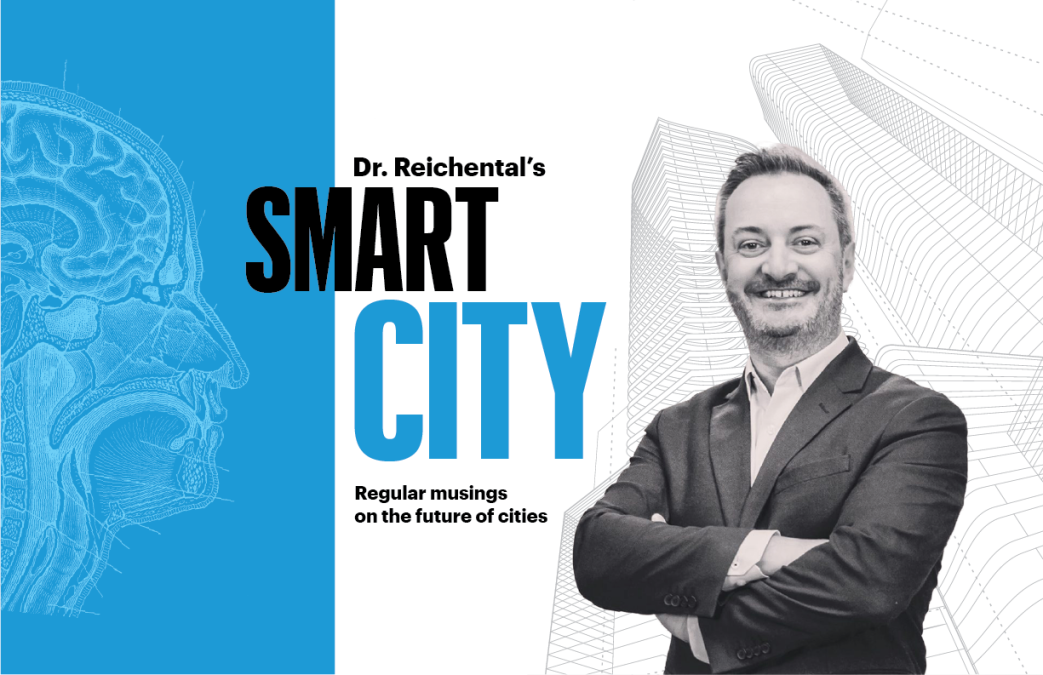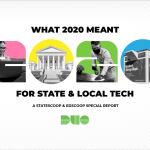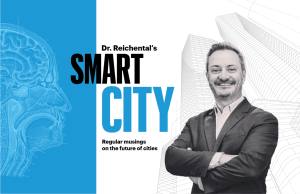How cities rediscovered data and digitalization in 2020

As city agencies around the world began sending their employees home as the COVID-19 pandemic took hold, many also started contemplating whether they could continue to maintain even the most basic public services.
But months later — despite individual cities’ responses bringing mixed results — a surprising and welcome outcome has begun to emerge: Many cities, recognizing the essential role of data and digitalization, are now smarter and better prepared than they were prior to the pandemic.
It’s easier to manage change when events are going well. There’s little pressure and timelines are often negotiable. Options are plentiful.
However, it’s in crises that leaders, teams and organizations are tested. This is when the big questions get asked. Does a practiced disaster recovery plan exist? What about a resilience strategy to respond and bounce back? Are all the systems in place to support work after a disaster?
The right answers, of course, are that there are plans and they can be executed seamlessly. After the initial shock, people, processes, and systems typically spin up with their respective responsibilities. While the situation will not be optimum, it should be enough to get through the crisis whether it’s a natural disaster, a human-made event, or even a pandemic.
When COVID-19 struck, every city agency was tested. Some were well-prepared, but too many found themselves caught off guard and in a state of panic. Those in better shape had rigorous disaster recovery and resiliency plans. They had imagined the worse case and invested in training, processes and technology to support several scenarios.
For most, a catastrophic pandemic was low on the list of potential disasters. But public agencies that had support for remote work through mobile technology, access to cloud and on-premise systems and supporting cybersecurity, were clearly at an advantage.
City chief information officers who had advocated for years for enterprise mobility, cloud services and robust security but whose message fell on deaf ears were equally frustrated and vindicated, while CIOs who had received support from their leadership became overnight heroes.
In the weeks that followed, the back-office CIO became front and center. City leaders demanded services that enabled their staff to remotely access systems and data, and they required new services such as video conferencing. Finally, support for urban digitalization was in vogue.
Next, it wasn’t long before all manner of people and organizations were requesting city data. For example, many government agencies and healthcare organizations wanted demographic and health-related data. More essential questions emerged. Did the data exist? Was it current? Was it accessible?
City agencies with mature data strategies, open data portals and data science talent could respond quickly and confidently. So many were not in that position.
To be fair, it’s not as if data and digitalization were unimportant for city leaders prior to the pandemic. Many were gradually implementing strategies that applied progressive approaches to their contemporary needs. (Still, today, too many agencies continue relegating technology to a back-office supporting role.)
In 2020, city leaders discovered that data and digitalization, as the private sector did years previously, were central to operating and supporting a 21st-century organization. Cities learned that smart communities are technology-savvy and make resiliency a priority.
While it shouldn’t have taken a pandemic to shake things up, technology and data are now a greater priority for every city agency.
While we’ll have time to reflect on the lessons learned, cities are potentially in a much better position now. Embracing innovation, technology and data in the right way is a winning-formula.
It’s easy to dwell on the negative. But let’s remember: When cities are better supported and better prepared, the community is the winner. That’s worth celebrating.
 Jonathan Reichental is the former chief information officer of Palo Alto, California. He’s now an instructor at several institutions, including the University of California, Berkeley, and online through LinkedIn. He’s the founder and CEO of the advisory and investment firm Human Future, and the author of Smart Cities For Dummies.
Jonathan Reichental is the former chief information officer of Palo Alto, California. He’s now an instructor at several institutions, including the University of California, Berkeley, and online through LinkedIn. He’s the founder and CEO of the advisory and investment firm Human Future, and the author of Smart Cities For Dummies.

This story was featured in StateScoop Special Report: 2020 - A StateScoop and EdScoop Special Report






